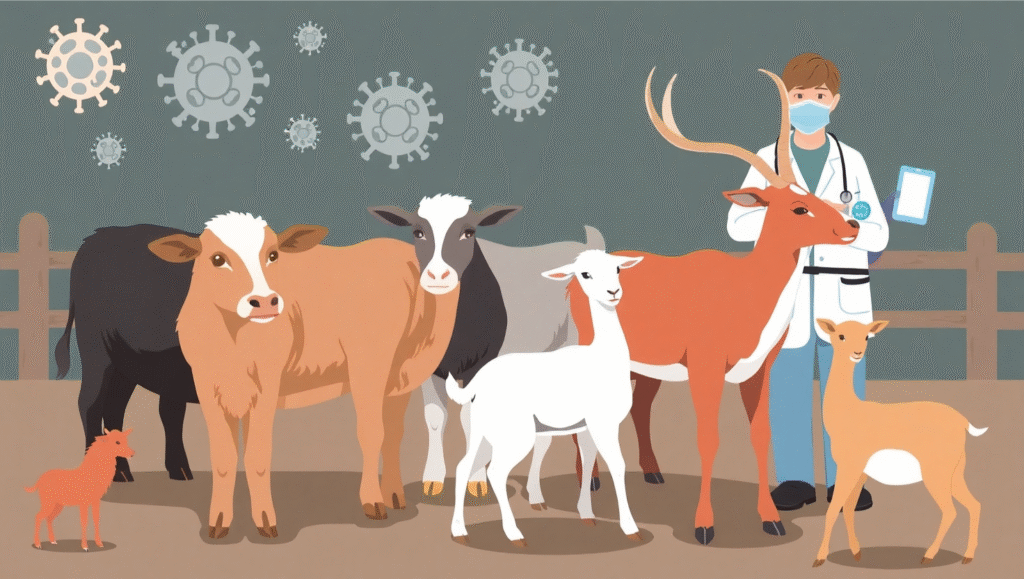Foot and Mouth Disease (FMD) Confirmed in Pune Zoo Deer Deaths
Syllabus: Environment, Animal Husbandry, Public Health (Prelims)
Source: Indian Express
Context
Sixteen spotted deer (chitals) at the Rajiv Gandhi Zoological Park in Pune died due to Foot and Mouth Disease (FMD), prompting authorities to urgently review animal health protocols and epidemic preparedness.
What is Foot and Mouth Disease (FMD)?
FMD is a highly contagious viral disease that affects cloven-hoofed animals, such as:
- Cattle, buffaloes, sheep, goats, pigs, and deer
It leads to fever, blisters, lameness, and significantly reduces milk yield and productivity, causing major economic losses.
Zoonotic Concern
- Not transmissible to humans
- Not a food safety risk
Transmission & Symptoms
- Transmission:
- Through direct contact, contaminated feed, equipment, vehicles, or even airborne particles
- Hosts:
- Domestic animals and wild species like spotted deer
- Incubation Period: 2–14 days
- Symptoms:
- High fever (2–3 days)
- Painful blisters on mouth, hooves, and teats
- Excessive salivation, lameness
- Reduced milk production, abortion, infertility
Diagnosis
- Confirmed via lab testing at authorised institutions such as:
- ICAR-NIFMD, Bhubaneswar
- Indian Veterinary Research Institute (IVRI), Bareilly
- NIVEDI, Bengaluru
Government Interventions
National Animal Disease Control Programme (NADCP)
- Launched: 2019
- Funding: 100% centrally funded
- Objective: Eradicate FMD and Brucellosis by 2030
Key Components:
- Mass vaccination of livestock
- Ear-tagging for traceability
- Disease surveillance and outbreak monitoring
- Cold chain infrastructure for vaccine storage
- Awareness campaigns for farmers
Supporting Programmes:
- Integrated with Livestock Health and Disease Control Programme (LHDCP)
- Backed by ICAR institutes for R&D, diagnostics, and reporting
Conclusion
The recent FMD outbreak in Pune Zoo highlights the urgent need for robust veterinary disease surveillance and timely vaccination. As FMD poses a threat to both domestic livestock and wildlife, effective implementation of schemes like NADCP is crucial for safeguarding animal health, livelihoods, and India’s livestock economy.











